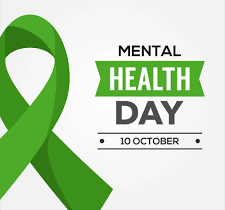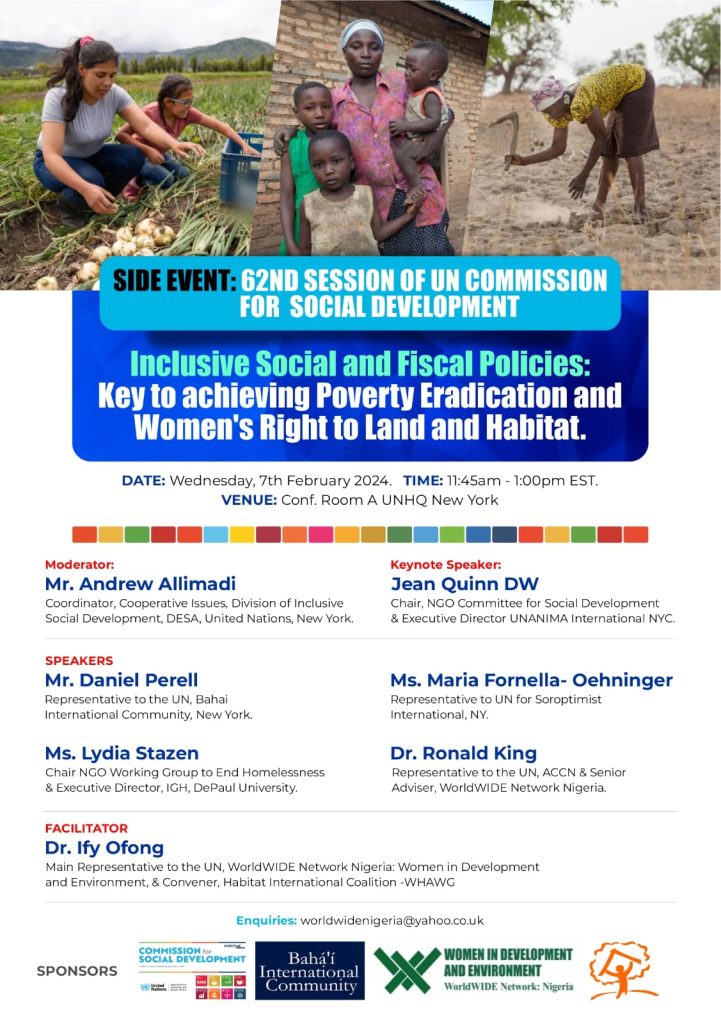World Mental Health Day 2021 Theme: Mental health in an unequal world
Since the advent of Covid-19 pandemic a lot of what we knew and used to have changed. The most impact being the way we used to relate. During a mental health group discussion on the 2nd of October 2021 this question “the digital age and the COVID-19 pandemic has further increased mental health of parents and children as well. Can you please talk about this briefly sir? The answer that came was that the good side of the pandemic lockdown – (keeping families together at the time), could have given us a lifetime opportunity for better bonding but the fear and agony it brought overshadowed everything. Meanwhile the virtual technology and individualistic lifestyle it rather emphasized simply helped to foster loneliness, solitude and isolation in the midst of the crowd which impacted on mental health. A cartoon picture was shared not too long ago about how families shared their evenings many years ago and how such shared moments are today. The cartoon showed sessions of praying together and storytelling at evening times then but today, the family, though sitting together, everyone is carrying one digital device or the other, each having his or her family online, less interaction was observed with those physically sitting with them, but much interaction and chatting was observed with faceless persons in distant lands online. Of course, this also impacts on mental health of members of the family. The WHO in its current efforts recognizes that health and other front-line workers, students, people living alone, and those with pre-existing mental health conditions, have been particularly affected by the necessities engendered by the Covid-19 pandemic. Incidentally, the above scenario did not alter the original WHO definition of health, mental health and well-being.
WHAT IS HEALTH?
According to the World Health Organization (WHO) 1948 definition, health is “A state of complete physical, mental and social well-being and not merely the absence of disease or infirmity.” (Jakab, 2011).It is noteworthy that after over 70 years of the WHO definition of health, the concept of mental health beginning to be understood or why should majority of the populace attribute the beautiful word mental-health to mental ill-health? There is positive mental health.
WHAT IS POSITIVE MENTAL HEALTH?
The WHO defines positive mental health as “a state of well-being in which the individual realizes his or her own abilities, can cope with the normal stresses of life, can work productively and fruitfully, and is able to make a contribution to his or her community”. It went on to say that this concept of well-being goes beyond the absence of mental ill health, and encompasses the perception that life is going well.
Being in good mental health means you are able to:
- Make the most of your potential
- Cope with life in positive ways
- Play a full part in your family, workplace, community and among friends.
- The person will also be to learn, have control over the expression of emotions, control his activities of daily living and keep relationships.
A person without good mental health will find it difficult to perform the above functions. In fact,whenever the mind begins to conceive things in the negative sense of it,and stress, anxiety, depression, bitterness, unforgiveness, and anger, isolating oneself, performing harmful habits, suicide ideation,etc,overwhelms one’s mind and thought processes, and prevents him from performing his activities of daily living, these will signal negative mental health conditions that will require immediate care. Even toxic relationships point to the mental health status of the persons involved. The above are sometimes at the root of some mental illnesses that Medical doctors sometimes can’t find causes for.
THE ULTIMATE AIM OF GOOD MENTAL HEALTH IS MENTAL WELL-BEING?
Well-being has been defined as the combination of feeling good and functioning well; the experience of positive emotions such as happiness and contentment as well as the development of one’s potential, having some control over one’s life, having a sense of purpose, and experiencing positive relationships (Huppert, 2009).
WHAT TO DO WHEN MENTAL HEALTH ISSUES ARISE
- SEEK THE HELP OF A PROFESSIONAL THERAPIST. Counselling with a trained therapist is your best decision after God.
- Intervention with a therapist gives you the opportunity to unburden your mind in an empathetic yet confidential and non-judgmental setting which brings hope, help and healing.
- Your self-esteem and self-confidence is very important in maintaining good mental health status. Seeking and counselling early with trained counsellors is highly recommended.
- Develop a health check plan for your life.
A holistic personal health check plan enables an individual to have a health-conscious programme for the lifespan. Such a plan will accommodate every aspect of one’s life.

General counsel for good mental health
- Submit to a mentor or licensed life coach. They will help you improve and gain speed in your health programme and can open doors you cannot open by yourself.
- Relate well with your superiors, your subordinates and family to ensure peaceful workplaces/relationships. You will also need them in your life journeys.
- Be time conscious. This will help you complete your tasks and have time to yourself and family. Good work/life balance is important for your health.
- Regularly check your health (physical and mental health checks).
- Be change-fascinated. Move with the time. We are in the 4th industrial revolution – the era of DIGITAL TECHNOLOGY. We already have Electric cars, driverless cars etc., are you in tune?
Whether anyone likes it or not, changes in our technology-driven world will affect everyone’s personal development, training, physical and mental health.
A major question was asked during the Mental Health Conference organised by SDF Initiative International in collaboration with the Association of Christian Counsellors of Nigeria (5th -6th October 2021) if there is awareness that mental health checks should be as regular as physical health checks in Nigeria.The participants were not very sure of the answer hence this write-up, in commemoration of the 2021 WHO World Mental Health Day, submits that;
- There should be a changed lifestyle that places holistic healthy living as part of everyone’s aspiration and as a personal development program. Maintaining good mental health (plan) should be taken as a personal responsibility.
- There must be conscious effort to create awareness of what mental health is and encourage members of the public to seek mental health care when the need arises. Every effort should be made to stop stigmatizing help seekers.
- There should be a robust and coordinated health scheme in Nigeria that emphasizes not only physical health but also mental health for all.
- It is instructive to note that the current National Health Insurance Scheme (NHIS) in use in Nigeria does not accommodate mental health. The colonial Lunacy Act of 1958 is what is currently in use in mental healthcare delivery/centers. The Federal Government of Nigeria is encouraged through this effort, to expand on this scheme to accommodate mental healthcare in the NHIS scheme.
- The scheme should make it mandatory for the establishment of a mental health clinic in every establishment/organisation of the Federal, States and Local government Areas and in every private sector organisation as well as in every school. Such clinics should be required to liaise with the established health institutions for effectiveness. The government owned clinics should be made open to everyone for equality of access.
- This paper posits that Premium should be placed on training mental health professionals whose skills should cater for persons whose mental health cases are not psychiatric in nature. Currently, there are about 2000 psychiatric doctors in Nigeria which brings the statistics to 1:1,000,000 persons of the population. The additional mental health professionals will be for the good of everyone.
- Special curriculum should be designed for the above proposed mental health professionals’ program at master’s degree level and to be accessed by persons who have attained first degree in health and related social science courses. This will enable training to the highest level of education in this aspect. Because there is need for this service, special incentives/grants should be given to those who would train and practice as it is currently being done in the United Kingdom.
- Finally, this presentation urges the National Assembly of the Federal Republic of Nigeria to give expedited attention to the Mental Health Bill before it, to pass this bill and to give Nigerians a new lease of life.
Written by :
Rev. Dr. Ronald O. King
(Trauma & Crisis Therapist, Mental health, Career, Marriage/Relationship Counsellor, Peace & Conflict Resolution.)
President: Association of Christian Counsellors of Nigeria,
MD, Bloomfield Consults Limited
roking@hotmail.com, +234-08123038595
#Let’s join hands with the WHO
#Mental Health In An Unequal World
#Mental health care for all: let’s make it a reality in Nigeria
#WorldMentalHealthDay2021



